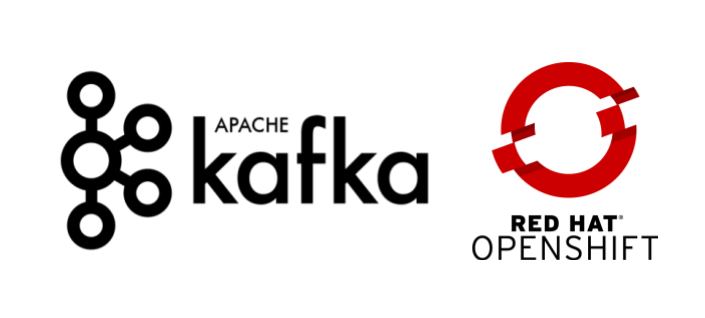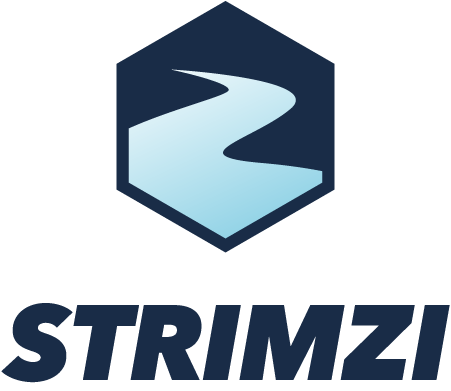The purpose of this demo is to utilize the components within the Red Hat Integration and Runtimes portfolio to integrate a traditional application with a microservices based architecture on OpenShift.
Note: The following instructions deploy AMQ Streams leveraging the Red Hat AMQ Streams operator. Additionally, it deploys a Java application that leverages Kafka with a built-in consumer and producer. It is capable of sending messages to AMQ Streams using REST endpoints
Login to OCP via oc client (Download from the Assets section located here)
oc login <cluster_url>- Download and run the "run-acrostic.sh" script:
. ./run-acrostic.shDONE! Now, you can access the Acrostic Quarkus UI by clicking the route for the "quarkus-kafka-consumer" microservice.
- Create new project called "kafka-demo"
oc new-project kafka-demo- Create AMQ Streams Operator Subscription:
echo '{"apiVersion":"operators.coreos.com/v1alpha1","kind":"Subscription","metadata":{"name":"amq-streams","namespace":"openshift-operators"},"spec":{"channel":"stable","installPlanApproval":"Automatic","name":"amq-streams","source":"redhat-operators","sourceNamespace":"openshift-marketplace","startingCSV":"amqstreams.v1.5.3"}}' | \
oc apply -f -Wait about 30 seconds for the Operator to be installed in the openshift-operators namespace, and then:
- Deploy Kafka cluster:
echo '{"apiVersion":"kafka.strimzi.io/v1beta1","kind":"Kafka","metadata":{"name":"my-cluster","namespace":"kafka-demo"},"spec":{"kafka":{"config":{"offsets.topic.replication.factor":3,"transaction.state.log.replication.factor":3,"transaction.state.log.min.isr":2,"log.message.format.version":"2.5"},"version":"2.5.0","storage":{"type":"ephemeral"},"replicas":3,"listeners":{"plain":{"authentiation":{"type":"scram-sha-512"}},"tls":{"authentiation":{"type":"tls"}}}},"entityOperator":{"topicOperator":{"reconciliationIntervalSeconds":90},"userOperator":{"reconciliationIntervalSeconds":120}},"zookeeper":{"storage":{"type":"ephemeral"},"replicas":3}}}' | \
oc apply -f -Wait about 60 seconds for the resources to be created in the kafka-demo project, and then:
- Extract ca.crt from the Kafka cluster install for TLS configuration:
oc extract secret/my-cluster-cluster-ca-cert --keys=ca.crt --confirm=true -n kafka-demo- Create new project called "acrostic-demo":
oc new-project acrostic-demo- Create ConfigMap from the local ca.crt file created on step 4:
oc create configmap kafka-cert --from-file=./ca.crt -n acrostic-demo- Deploy the application:
oc new-app jboss-eap72-openshift:latest~https://github.com/roller1187/random-message-generator.git \
-l app.openshift.io/runtime=eap \
-n acrostic-demo- Create ingress route:
oc expose svc/random-message-generator -n acrostic-demo --path /xmlSource repo: random-message-generator
- Deploy the application:
oc new-app --name postgresql \
-e POSTGRESQL_USER=openshift \
-e POSTGRESQL_PASSWORD=openshift \
-e POSTGRESQL_DATABASE=sampledb \
registry.access.redhat.com/rhscl/postgresql-10-rhel7 \
-l app.openshift.io/runtime=postgresql \
-n acrostic-demo- Deploy the application:
oc new-app openjdk-11-rhel7:1.0~https://github.com/roller1187/kafka-consumer.git \
--env KAFKA_BACKEND_TOPIC=my-topic \
--env KAFKA_UI_TOPIC=ui-topic \
--env KAFKA_PRODUCER_URL=http://kafka-producer.acrostic-demo.svc.cluster.local:8080 \
--env SPRING_KAFKA_BOOTSTRAP_SERVERS=my-cluster-kafka-bootstrap.kafka-demo.svc.cluster.local:9093 \
--env POSTGRES_SERVICE_URL=postgresql.acrostic-demo.svc.cluster.local:5432/sampledb \
-l app.openshift.io/runtime=openjdk \
-n acrostic-demo- Create a volume mapping to auto-generate keystore from Kafka certificate
oc set volume deployment/kafka-consumer --add --type=configmap --configmap-name=kafka-cert --mount-path=/tmp/certs -n acrostic-demoSource repo: kafka-consumer
- Deploy the application:
oc new-app openjdk-11-rhel7:1.0~https://github.com/roller1187/kafka-producer.git \
--env KAFKA_BACKEND_TOPIC=my-topic \
--env SPRING_KAFKA_BOOTSTRAP_SERVERS=my-cluster-kafka-bootstrap.kafka-demo.svc.cluster.local:9093 \
-l app.openshift.io/runtime=openjdk \
-n acrostic-demo- Create a volume mapping to auto-generate keystore from Kafka certificate
oc set volume deployment/kafka-producer --add --type=configmap --configmap-name=kafka-cert --mount-path=/tmp/certs -n acrostic-demo- Create ingress route:
oc expose svc/kafka-producer -n acrostic-demoSource repo: kafka-producer
- Deploy the application:
oc new-app openjdk-11-rhel7:1.0~https://github.com/roller1187/fuse-kafka-producer.git \
--env KAFKA_BACKEND_TOPIC=my-topic \
--env SPRING_KAFKA_BOOTSTRAP_SERVERS=my-cluster-kafka-bootstrap.kafka-demo.svc.cluster.local:9093 \
-l app.openshift.io/runtime=camel \
-n acrostic-demo- Create a volume mapping to auto-generate keystore from Kafka certificate
oc set volume deployment/fuse-kafka-producer --add --type=configmap --configmap-name=kafka-cert --mount-path=/tmp/certs -n acrostic-demoSource repo: fuse-kafka-producer
- Deploy the application:
oc new-app openjdk-11-rhel8:1.0~https://github.com/roller1187/quarkus-kafka-consumer.git \
--env=JAVA_OPTIONS="-Dquarkus.http.host=0.0.0.0" \
--env=KAFKA_BOOTSTRAP_SERVERS=my-cluster-kafka-bootstrap.kafka-demo.svc.cluster.local:9093 \
-l app.openshift.io/runtime=quarkus \
-n acrostic-demo- Create volume mappings to auto-generate keystore from Kafka certificate
oc set volume --name kafka-cert deployment/quarkus-kafka-consumer --add --type=configmap --configmap-name=kafka-cert --mount-path=/tmp/certs -n acrostic-demooc set volume --name keystore deployment/quarkus-kafka-consumer --add --type=emptyDir --mount-path=/tmp -n acrostic-demo- Export Deployment Config into local file quarkus-deployment.yml:
oc get deployment/quarkus-kafka-consumer --output=yaml > ./quarkus-deployment.yml- Edit Deployment Config to add initContainer for keystore creation (sed dependency):
sed -i '' 's/^ containers:/ initContainers: \
- name: init-createkeystore \
image: '\''registry.redhat.io\/openjdk\/openjdk-11-rhel7:1.0'\'' \
command: \
- keytool \
- '\''-import'\'' \
- '\''-file'\'' \
- \/tmp\/certs\/ca.crt \
- '\''-keypass'\'' \
- password \
- '\''-keystore'\'' \
- \/tmp\/keystore.jks \
- '\''-storepass'\'' \
- password \
- '\''-noprompt'\'' \
volumeMounts: \
- name: kafka-cert \
mountPath: \/tmp\/certs \
- name: keystore \
mountPath: \/tmp \
&/g' quarkus-deployment.yml- Apply Deployment Config changes:
oc apply -f ./quarkus-deployment.yml- Create ingress route:
oc expose svc/quarkus-kafka-consumer -n acrostic-demoSource repo: quarkus-kafka-consumer
DONE! Now, you can access the Acrostic Quarkus UI by clicking the route for the "quarkus-kafka-consumer" microservice.
- From your terminal logged into OCP, execute the following command:
sudo oc port-forward $(oc get pods -n acrostic-demo | grep postgresql | grep Running | awk '{print $1}') 80:5432- Run pgAdmin from your local server and connect to the database running on OCP using server address "localhost" on port 80. Database username/password: "openshift/openshift"
oc delete all --selector app=kafka-consumer -n acrostic-demo
oc delete all --selector app=kafka-producer -n acrostic-demo
oc delete all --selector app=fuse-kafka-producer -n acrostic-demo
oc delete all --selector app=quarkus-kafka-consumer -n acrostic-demo
oc delete all --selector app=random-message-generator -n acrostic-demo
oc delete all --selector app=postgresql -n acrostic-demo
oc delete all --selector app.kubernetes.io/instance=my-cluster -n kafka-demo
oc delete subscription amq-streams -n openshift-operators
oc delete ClusterServiceVersion amqstreams.v1.5.3 -n default
oc delete project acrostic-demo
oc delete project kafka-demoPlease create any issues against this project and feel free to contribute!





